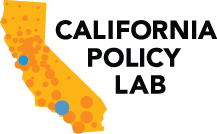
Better understanding how workers in California recovered after the COVID-19 pandemic can help policymakers understand the impact of unemployment programs.
Background
Losing employment is extraordinarily costly for the average individual, with financial, health, and emotional repercussions. Although it was short relative to other recessions, the COVID-19 recession was severe, and workers filed record levels of Unemployment Insurance (UI) claims. In response to the pandemic, Congress enacted the Federal Pandemic Unemployment Compensation (FPUC) and Lost Wages Assistance (LWA) programs, which provided supplemental financial support to UI beneficiaries. However, there are ongoing questions about how well historically vulnerable groups recovered from the pandemic and what role programs like FPUC and LWA played in supporting economic recovery.
Research Project
This project will provide a better understanding of the impact of receiving unemployment benefits on workers’ economic recovery, including from supplemental programs like FPUC and LWA. It will examine outcomes for UI recipients, including how many are earning wages that are at the level they were earning before the pandemic as well as measuring their cumulative losses based on their projected earnings during the two years immediately following their UI claim. The study is focused on California unemployment recipients and examines these outcomes across income bands and demographic groups.
Research Team
Professor Till von Wachter (Principal Investigator), Roozbeh Faghihi Moghadam, Gustavo Rodriguez, and Kara Segal
Results
Forthcoming
